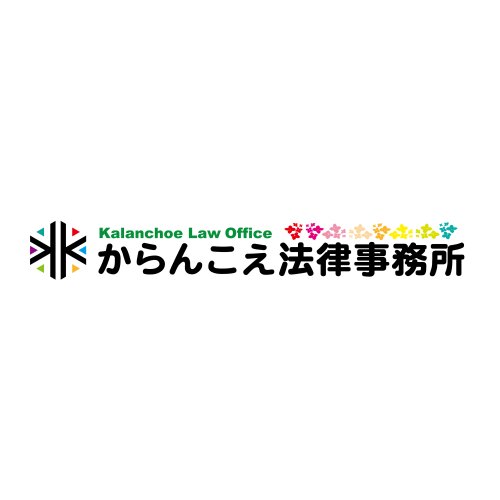Best Collaborative Law Lawyers in Sendai
Share your needs with us, get contacted by law firms.
Free. Takes 2 min.
Free Guide to Hiring a Family Lawyer
List of the best lawyers in Sendai, Japan
About Collaborative Law in Sendai, Japan
Collaborative Law, also known as collaborative practice or collaborative divorce, is an alternative dispute resolution method aimed at helping parties resolve legal issues outside of traditional courtroom litigation. In Sendai, Japan, this approach is often used in family law matters such as divorce, child custody, and property division. Collaborative Law involves both parties working with their respective lawyers and, in some cases, other professionals such as financial advisors or counselors. The goal is to reach a mutually acceptable agreement through transparent communication and cooperation, reducing stress, costs, and the adversarial nature of legal disputes.
Why You May Need a Lawyer
There are several common situations where individuals in Sendai may seek legal assistance with Collaborative Law:
- Family disputes, including divorce or separation
- Establishing child custody or visitation arrangements
- Negotiating child or spousal support
- Dividing marital property and debts
- Resolving inheritance or estate matters among family members
- Settling business disputes between partners or shareholders
- Addressing workplace conflicts and employment issues
A qualified collaborative law lawyer can safeguard your rights, clarify your options, and facilitate productive discussions that lead to lasting agreements.
Local Laws Overview
In Japan, collaborative law is not governed by a single national statute but relies on a mix of family law, civil procedure, and local court rules. In Sendai, practitioners follow guidelines established by the Family Court and local bar associations. Key elements include:
- Both parties must voluntarily agree to participate in the collaborative process.
- All involved lawyers are specifically trained in collaborative law methods and are committed to conflict resolution rather than litigation.
- Confidentiality of discussions and materials is strictly maintained to encourage honest negotiation.
- The parties agree in writing not to litigate, and if the process breaks down, the lawyers involved must withdraw before court action can be initiated.
- The Family Court in Sendai may offer mediation services that complement or support collaborative law efforts.
- Japanese Civil Code and Family Law (such as the Act on the General Rules for Application of Laws) serve as the legal foundation for agreements reached through this process.
These factors ensure that collaborative law procedures align with both national legal requirements and local judicial customs in Sendai.
Frequently Asked Questions
What is the difference between collaborative law and traditional litigation?
Collaborative law focuses on cooperation and negotiation, involving both parties and their lawyers to reach a solution, instead of leaving the outcome to a judge as in traditional litigation.
Is collaborative law only for divorces?
No, collaborative law can be used in various disputes, including family, business, and employment matters. However, it is most commonly applied in family law cases, especially divorces or child custody issues.
Are collaborative law agreements legally binding in Japan?
Yes, agreements reached through the collaborative process can be legally binding if they meet the requirements set by Japanese law and are properly drafted and signed by all parties.
How is collaborative law different from mediation?
Mediation typically involves a neutral third party assisting the parties in reaching an agreement, whereas in collaborative law, both parties have their own lawyers actively guiding them throughout the negotiation process.
Can I switch to litigation if collaborative law fails?
Yes, but if collaborative law talks break down, the lawyers representing you in the process cannot participate in any subsequent litigation. You will need to hire new legal representation if the matter goes to court.
What happens if new information comes to light during the process?
Both parties are expected to fully disclose all relevant information. If new facts emerge, the process encourages open discussion and fair reevaluation of the agreement terms.
Are children involved in collaborative law proceedings?
Children do not participate directly, but their best interests are a central focus, especially in custody and support matters. Professionals such as child psychologists may be consulted if needed.
How long does the collaborative law process usually take in Sendai?
The duration varies based on the complexity of the issues, but collaborative law often resolves disputes quicker than litigation, typically in a few months instead of over a year for court cases.
What are the costs compared to regular court proceedings?
Collaborative law can be more cost-effective than traditional litigation, since the process tends to be quicker, less adversarial, and avoids prolonged court appearances. However, costs differ depending on the lawyers’ fees and the case's complexity.
Do I need a lawyer trained in collaborative law?
Yes, for effective participation in the collaborative process, it is essential to have a lawyer specifically trained in collaborative law techniques to ensure proper facilitation and adherence to the process guidelines.
Additional Resources
There are several valuable resources for those seeking information or assistance with collaborative law issues in Sendai:
- Sendai Family Court - provides information and mediation services for families in dispute
- Miyagi Bar Association - has listings of local lawyers qualified in family law and collaborative practice
- Japan Collaborative Law Association - offers education and referrals to trained collaborative law professionals
- Local government family support centers - provide general advice and referrals for family-related conflicts
Consulting these organizations can help you locate the right legal professional and access helpful guidance throughout the collaborative process.
Next Steps
If you feel that collaborative law may be the right approach for your situation in Sendai, consider the following steps:
- Reflect on your goals and willingness to negotiate with the other party.
- Seek an initial consultation with a lawyer trained in collaborative law to evaluate your case and understand your options.
- Discuss the possibility of collaborative law with the other party to confirm their willingness to participate.
- Formally retain a collaborative law lawyer and sign a participation agreement outlining the process and commitment of all parties involved.
- Work closely with your lawyer and any necessary professionals to prepare for collaborative sessions and achieve a satisfactory outcome.
Taking these steps can help you resolve your dispute more amicably, cost-effectively, and with less emotional strain than traditional litigation.
Lawzana helps you find the best lawyers and law firms in Sendai through a curated and pre-screened list of qualified legal professionals. Our platform offers rankings and detailed profiles of attorneys and law firms, allowing you to compare based on practice areas, including Collaborative Law, experience, and client feedback.
Each profile includes a description of the firm's areas of practice, client reviews, team members and partners, year of establishment, spoken languages, office locations, contact information, social media presence, and any published articles or resources. Most firms on our platform speak English and are experienced in both local and international legal matters.
Get a quote from top-rated law firms in Sendai, Japan — quickly, securely, and without unnecessary hassle.
Disclaimer:
The information provided on this page is for general informational purposes only and does not constitute legal advice. While we strive to ensure the accuracy and relevance of the content, legal information may change over time, and interpretations of the law can vary. You should always consult with a qualified legal professional for advice specific to your situation.
We disclaim all liability for actions taken or not taken based on the content of this page. If you believe any information is incorrect or outdated, please contact us, and we will review and update it where appropriate.










